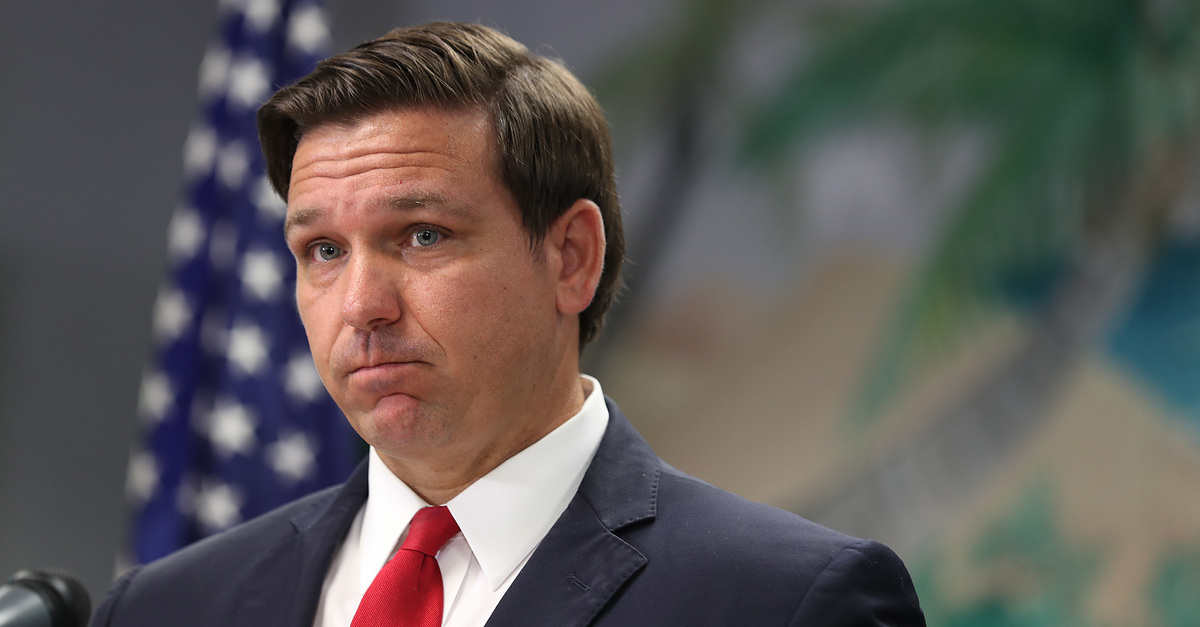
Fla. Gov. Ron DeSantis
A coalition of 36 former U.S. Justice Department civil rights division attorneys on Tuesday filed an amicus brief in federal court arguing that Florida’s law requiring former felons to complete “all legal financial obligations” (LFOs) before their voting rights can be restored is blatantly unconstitutional.
The group emphasized that during their collective time at the DOJ — which extended from 1960-2018 — enforcing the Voting Rights Act of 1965 (VRA) was a “primary responsibility” of the division, particularly monitoring the constant array of new laws intended to deprive certain classes of citizens of their right to vote. According to the brief, Florida’s law is nothing more than a poll tax by another name.
“Based on this long and deep experience enforcing federal voting-rights laws, amici are unanimous in their view that under the Constitution no state or local government may impose a financial fee as a prerequisite to voting,” the brief stated. “Accordingly, amici have a strong interest in opposing measures that operate effectively as poll taxes and unconstitutionally impede the right to vote, like the pay-to-vote measure now at issue.”
Florida’s 2018 Amendment 4, which passed with more than 65 percent of the vote, automatically restored voting rights to ex-felons who had “completed all of the terms of their sentences.” The measure was initially expected to return the vote to as many as 1.5 million Floridians. However, to prevent franchising a new bloc of Democratic voters, the state’s GOP legislature passed SB 7066 in May, which undermined Amendment 4 by preconditioning the restoration of voting rights on the ability of former felons to pay sometimes massive fines, fees and restitution amounts (known together as “LFOs”).
After a three-judge panel in February ruled that Florida couldn’t keep indebted ex-felons from voting, the full panel of judges on the Eleventh Circuit Court agreed to rehear an appeal in the case last month.
The attorneys argue that the law is a direct violation of the Twenty-Fourth Amendment, which prohibits states from conditioning the right to vote in federal elections on paying a “poll tax or other tax.”
“The District Court gave this case the careful consideration mandated by the important right at stake, and properly concluded that Florida’s requirement that felons pay fees and costs associated with their case to be eligible to vote is properly classified as a tax,” the attorneys argued. “That ends the inquiry, since it is beyond question that the Twenty-fourth Amendment prohibits such a tax as a precondition to voting in a federal election—which is precisely what Florida has done.”
The brief further contends that regardless of what the legislature says, the LFOs exhibit all the “essential features” of a tax.
“These facts are plain on the face of the authorizing statutes and confirms that the fees are taxes,” the brief stated. “Each fee statute is expressly drawn by the Florida Legislature to generate revenue, to mandate a specific operational purpose for which the revenue must be used, and to require collection of the revenue for any felony regardless of intent.”
In closing, the attorneys urge the court to affirm the district court’s ruling and prevent Florida from selectively withholding the voting franchise under a system that offends both the State and U.S. Constitution.
Read the full brief below.
Amicus Brief – Former Officials of the CRD by Law&Crime on Scribd
[image via Joe Raedle/Getty Images]
Have a tip we should know? [email protected]